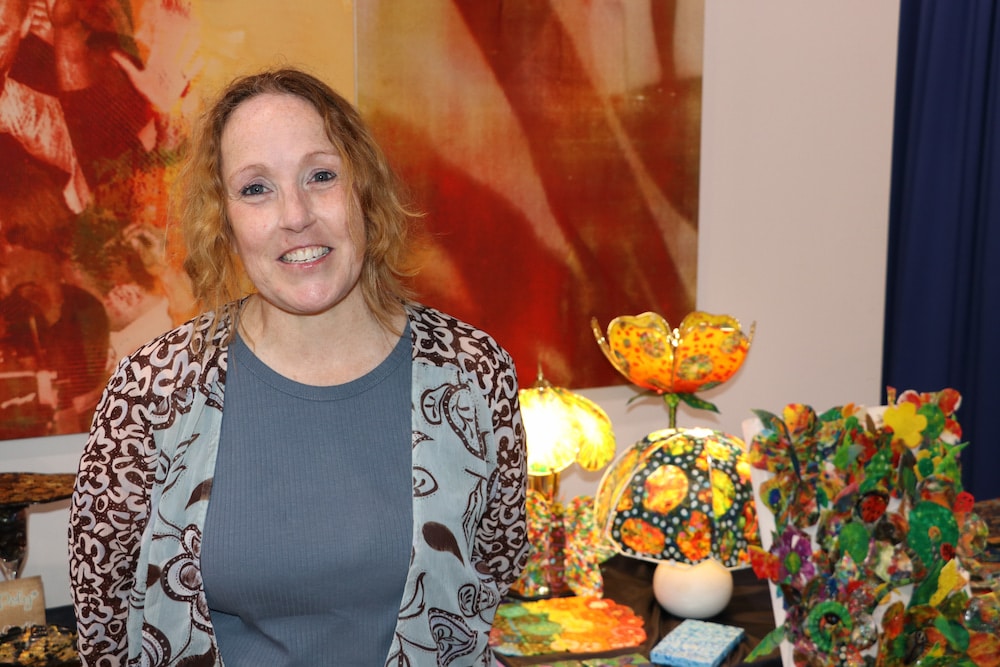Earlier this year, Canberra Daily interviewed Candice Addicoat, a local designer who pioneered a world-first technique to turn polyethylene plastic into art and household items – a zero-cost, zero-waste material, she states.
Yesterday, to begin National Recycling Week, Ms Addicoat displayed some of her artworks at the ACT Legislative Assembly, in a one-day exhibition called ‘Transformation’, attended by politicians, environmentalists, community leaders, and other artists and designers.
Polyethylene, Ms Addicoat says, is the most wasteful plastic on the planet, but she wants to demonstrate it can be used for “design, beauty, and purpose”.
“A lot of stuff we’re putting in the bin, disregarding and discarding, is actually design materials,” she said. “The future of the environment and the planet is really just dependent on our imagination.”
She melts shampoo and sauce bottles, turns them into plastic craft sheets, and then into bowls, platters, and lamps. Chocolate trays become children’s toys, like intersecting stars – a cheap way families can make toys from what they have collected at home.
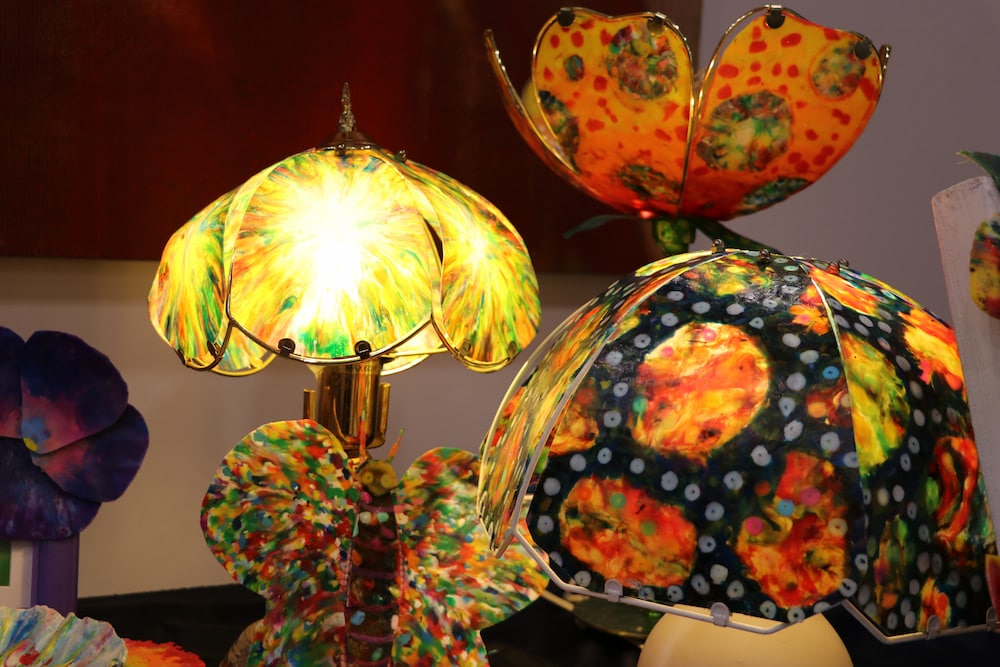
But her ambitions go beyond art; she believes polyethylene can be a construction material, used for anything from bus shelters and buildings to walls and footpaths. It could replace mass-produced carbon footprint-heavy materials – and she wants Canberra to be the first city to reuse this waste plastic.
“The big idea is that when a plastic is consumed by a city, it doesn’t have to leave that city; it doesn’t have to risk going to landfill or the environment or the ocean,” Ms Addicoat said. “We can use all the polyethylene plastic in the city, if we want to.”
Greens MLA Jo Clay sponsored the event. “Candice is taking a lot of big problems together and solving them all at once,” she said. “Her solutions address the heavy carbon footprint of mass-produced goods, our waste stream, and resource scarcity, and comes up with a better way to deal with our waste.
“She’s also great at social inclusion, and she works with a lot of people who often feel left behind by environmental conversations, like the long-term unemployed and those who live in public housing. She shows us how to create beauty with very little money and easy-to-learn techniques.”
Ms Addicoat founded SCENE, a design charity that refurbishes community organisations, housing estates, and care facilities, turning so-called junk into art and furniture. She is also a resident designer at the Green Shed.
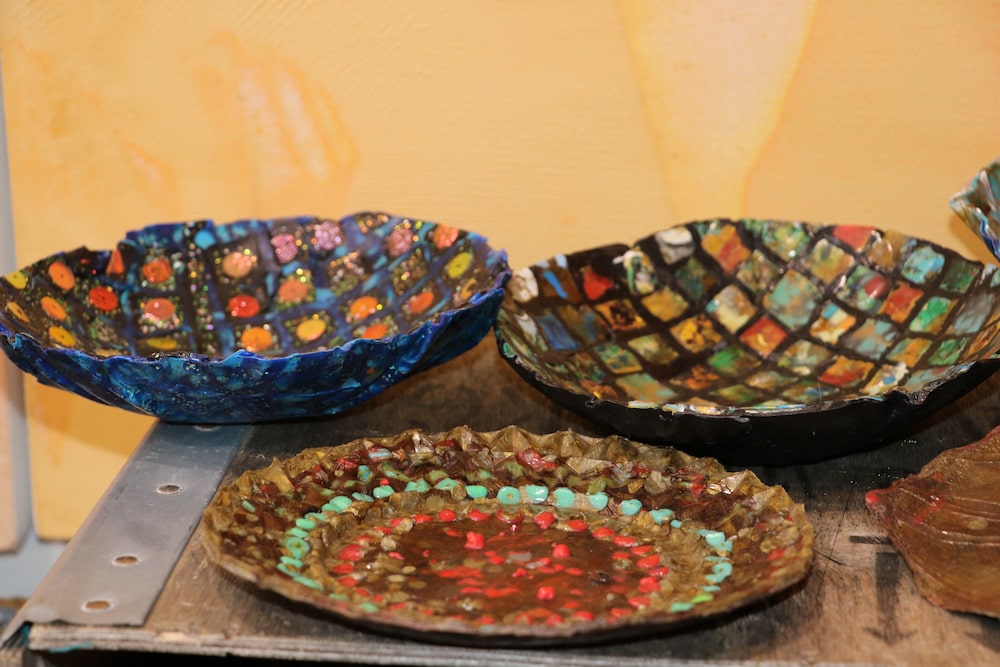
The theme of National Recycling Week this year, Ms Clay noted, is that waste is not waste, until it is wasted.
“People like Candice are showing us how that is genuinely possible, right now, with the technology we already have. It’s a real message of hope.”
The ACT’s recycling levels had plateaued, Ms Clay said; the ACT generates around 1 million tonnes of waste and recycling this year.
“It’s time we started thinking about what we need and how to make it in a sustainable way,” she said.
In August, Ms Clay released the ACT Greens’ Vision for our Circular Economy, a system without waste, and where everything becomes a resource.
“Candice is already working in a circular economy,” Ms Clay said. “It’s a far cry from the make-sell-dispose linear economy most of us are familiar with, and it shows us a better way forward.”

Ms Addicoat wants the community to get involved. She held an exhibition at Floriade, Plasticus Botanica (the plastic garden), which showcased, among other items, the world’s first group artwork, a wattle tree painting made by the Strong Aboriginal Women’s group.
“The biggest response from people is surprise, delight, and eagerness to have a go themselves,” Ms Addicoat said. “They’ve never seen anything like this with waste plastic before. A couple of people thanked me for coming up with something with this plastic, which was humbling.”
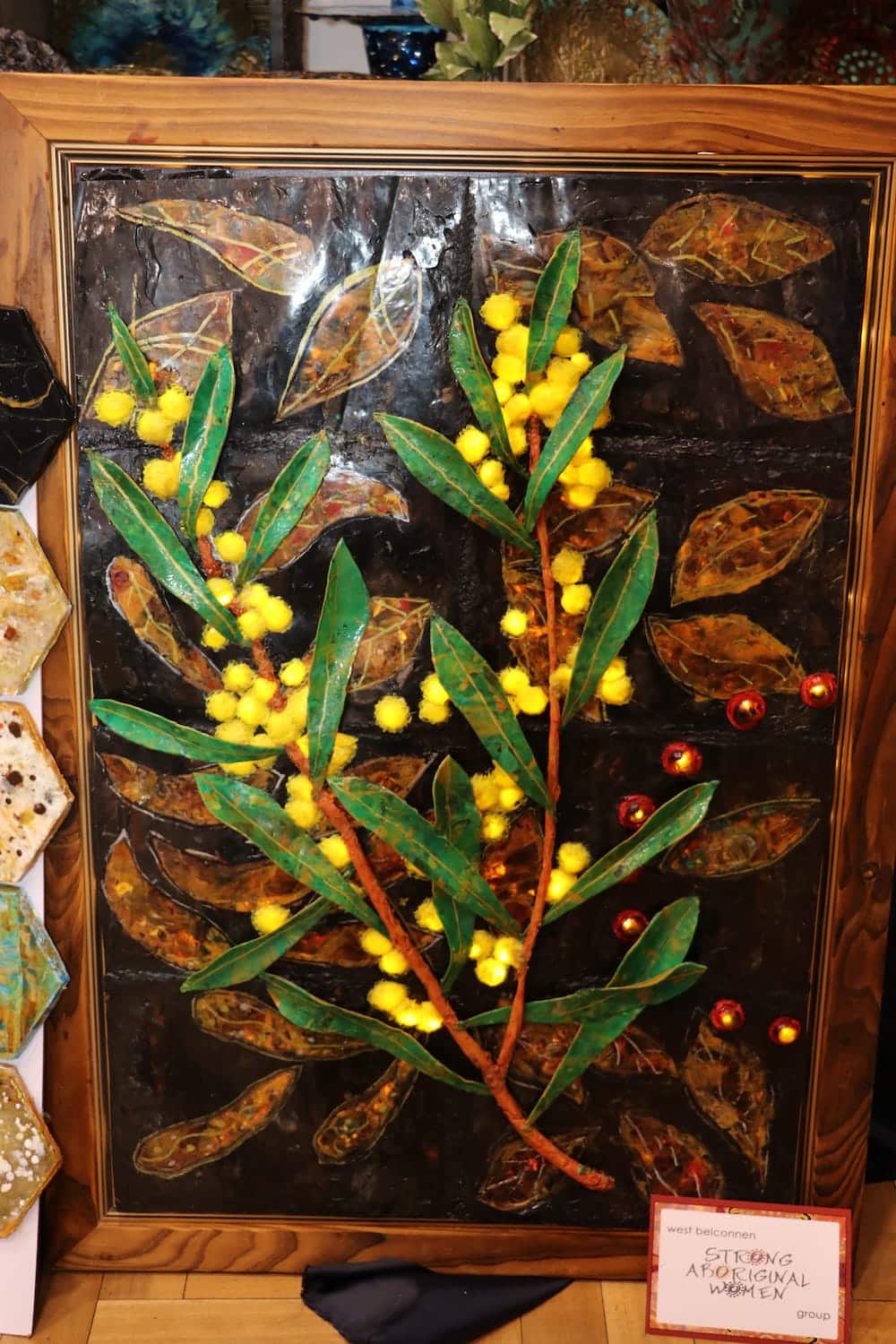
She hopes Canberra will set a world record for recycling polyethylene. Each school and community centre could have its own shredder, turning waste plastic into more useful items. Cafés could make giant coffee cups from their plastic. Even government departments could take part.
“I really hope many Canberrans will participate,” she said. “It isn’t complicated; it isn’t lengthy; it’s very simple and quick.”
From there, once the community is interested, plastic would be used more and more, up to city renewal.
“I cannot stop coming up with new ideas daily about what we can do with plastic, and I can’t wait for the community to start playing with the plastic. I have lots of ideas, but a whole community will come up with so many ideas for this waste plastic that we can’t even imagine.”
Some, however, are concerned Ms Addicoat’s process is dangerous. Materials scientist Victoria Pearce warned Canberra Daily that melting polyethylene could be toxic.
- Opinion: Polyethylene is not safe (13 September)
Ms Addicoat, however, states that studies by the Environment Protection Authority, among others, show that polyethylene is not harmful for human, animal, or plant life. Melting polyethylene has been sold commercially in Australia as a safe melting toy for children over the age of 3 for over 50 years, she said; the toy passes rigorous Australian safety standards, and is sold everywhere.
Ms Addicoat is part of a growing and innovative industry, Ms Clay thinks. Tim Miller began Lids4Kids as a charity recycling initiative, and has expanded his range of products into recycled park benches. Professor Veena Sahajwalla of UNSW is producing new generation green materials made from waste, like kitchen tiles.
“There are a lot of clever and passionate people out there right now coming up with solutions to our big problems.”
Ms Clay is delighted, too, with her present from Ms Addicoat: the world’s first handbag made from recovered fabric, plastic, and metal.
“It is a true piece of art, and I love it!” Ms Clay said.
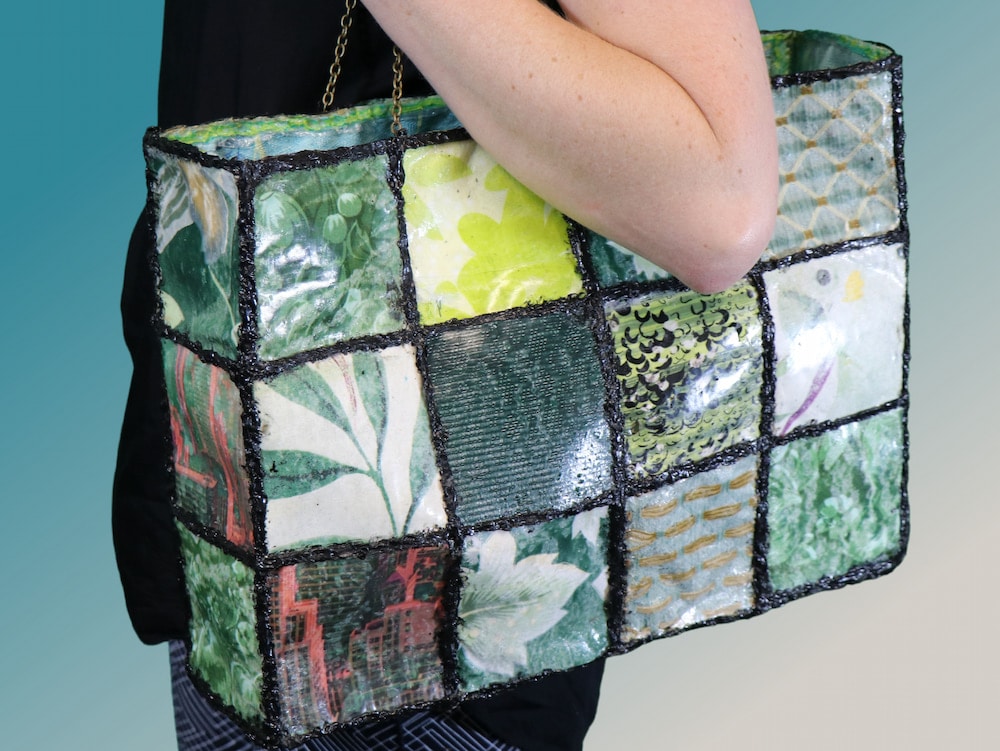
For more information, visit Plastic Static, a platform to share ideas, pictures, techniques, and facts about used PE plastic. The website is part of the PlastiSCENE program, a recycled plastic initiative of Ms Addicoat’s community improvement and engagement charity, SCENE.
Canberra Daily is keen to hear from you about a story idea in the Canberra and surrounding region. Click here to submit a news tip.

